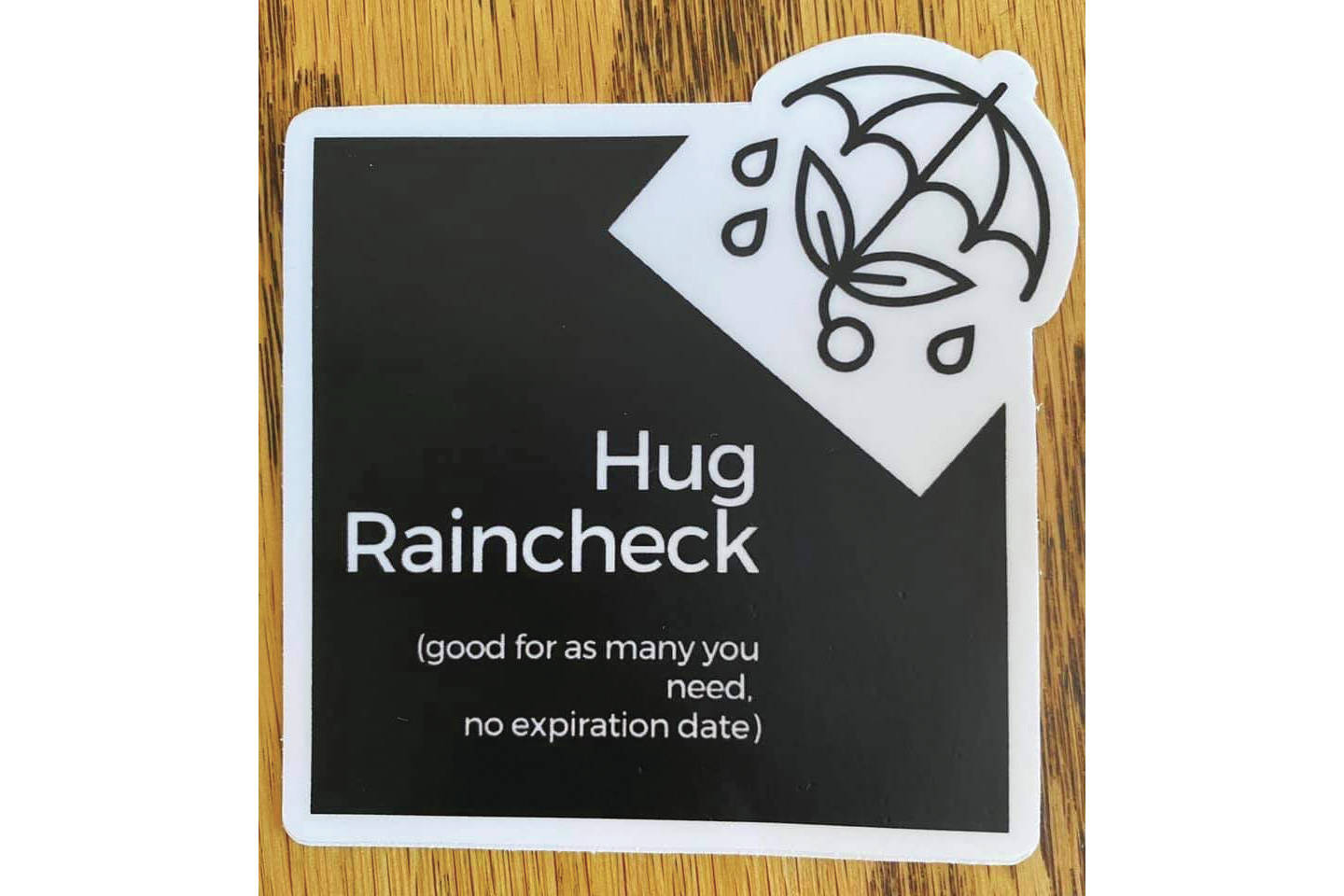Last summer, while standing on the boardwalk on the Spit, an acquaintance walked by. Without a word, she handed me something flat and plastic.
I stood for a minute watching her back as she continued on her way. I held the small object in my hand and read, “Hug Raincheck, (good for as many you need. No expiration date).” Emotions welled inside as I realized how much I missed a hug in this pandemic 2020. With family around me, we chose masks, distancing, and not to hug in order to stay healthy. As social mammals, we touch. We kiss. We caress. We hug. It’s part of our DNA.
Everyone feels this deprivation of contact. COVID-19 weighs on us with little end in sight. Numbers of cases continue to spike during winter months when people spend less time outside. The world and Homer, at the end of the road, are in a community/global health crisis.
When the pandemic forced Homer and Alaska to lock down early this year, Ravn Air went bankrupt and a quiet came over this town akin to Sept. 11 when nationwide all flights were grounded. Afraid to be in large crowds, some in a risky age, we stayed home. Family and friends brought groceries and mail. School and meetings became virtual as we met on computers and society functioned virtually.
Our beautiful location didn’t change. Our lifestyle withdrew into our homes. Blessed with trails, skiing, hiking and beautiful Kachemak Bay, Homer managed admirably. South Peninsula Hospital shut its doors to visitors and began testing in earnest. We flattened the curve, and the fishing and tourist season opened as well as a few take-out eateries. We relaxed. Each Thursday morning, KBBI interviewed employees from public health, the hospital, the city and the Kenai Peninsula Borough School District to keep us informed. It worked. Numbers stayed low throughout the fishing and tourist season.
Come fall, schools opened in Homer knowing that could change. The virus resurfaced with gusto. Schools closed. Large gatherings stopped. We watch and listen in hopes of maintaining our low numbers while a vaccine research continues. Gov. Mike Dunleavy announced the virus condition in Alaska an emergency last week.
Working in my garden this past summer, thoughts turned to healing. How can we heal after this virus or during this virus raging?
How can we turn this experience into a “Pay It Forward?” Free hospital testing available, City of Homer and Alaska grants in addition to business accommodations have kept us going. We successfully voted in the middle of a pandemic. We’ve learned. We’re learning how to navigate life in a totally new manner for all of us. We recognize how fortunate we are to live at the end of the road. Bravo to what we’ve accomplished.
This virus has wounded families, businesses, government, society as a whole. In our wounded condition, we can be healers for one another. Changed by this virus, we can use our imaginations to see ourselves whole and our country functioning again no different than athletes use imagination in training. We can listen to each other, enter into each other’s loneliness and pain and acknowledge how difficult life has become due to an invisible virus.
In our common humanity, we are all wounded healers. Going forward we must be vigilant. Patience and understanding are essential to “Pay It Forward” as we experience COVID-19 fatigue. Masks, distancing and small gatherings are our only tools at this writing. We can offer a hug raincheck to each other knowing we are all suffering, wounded healers.
Flo Larson is a trustee for the Homer Foundation. Pay it Forward is a monthly column sponsored by the Homer Foundation, a community foundation promoting local philanthropy since 1991. To learn more, visit www.homerfoundation.org and like them on Facebook.


